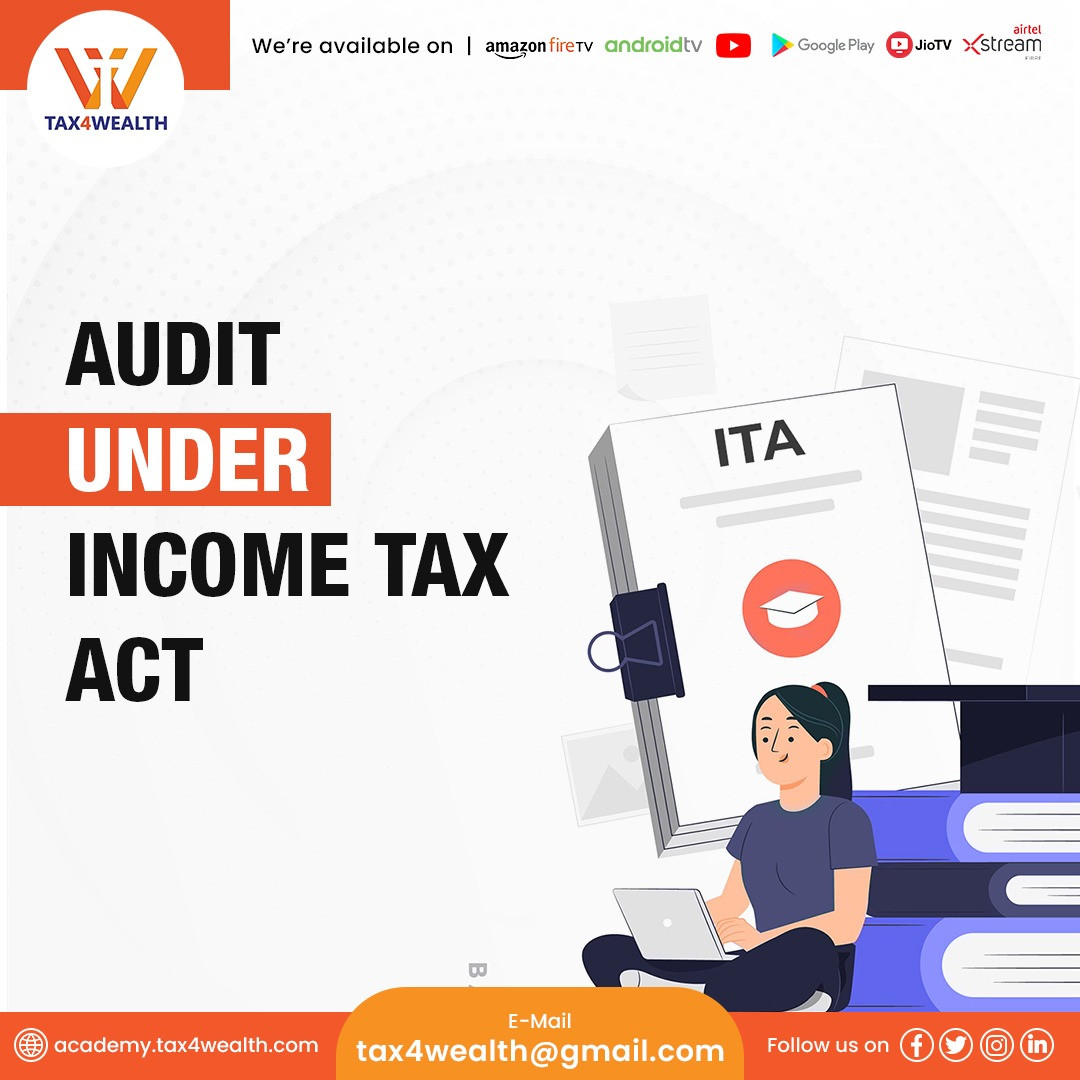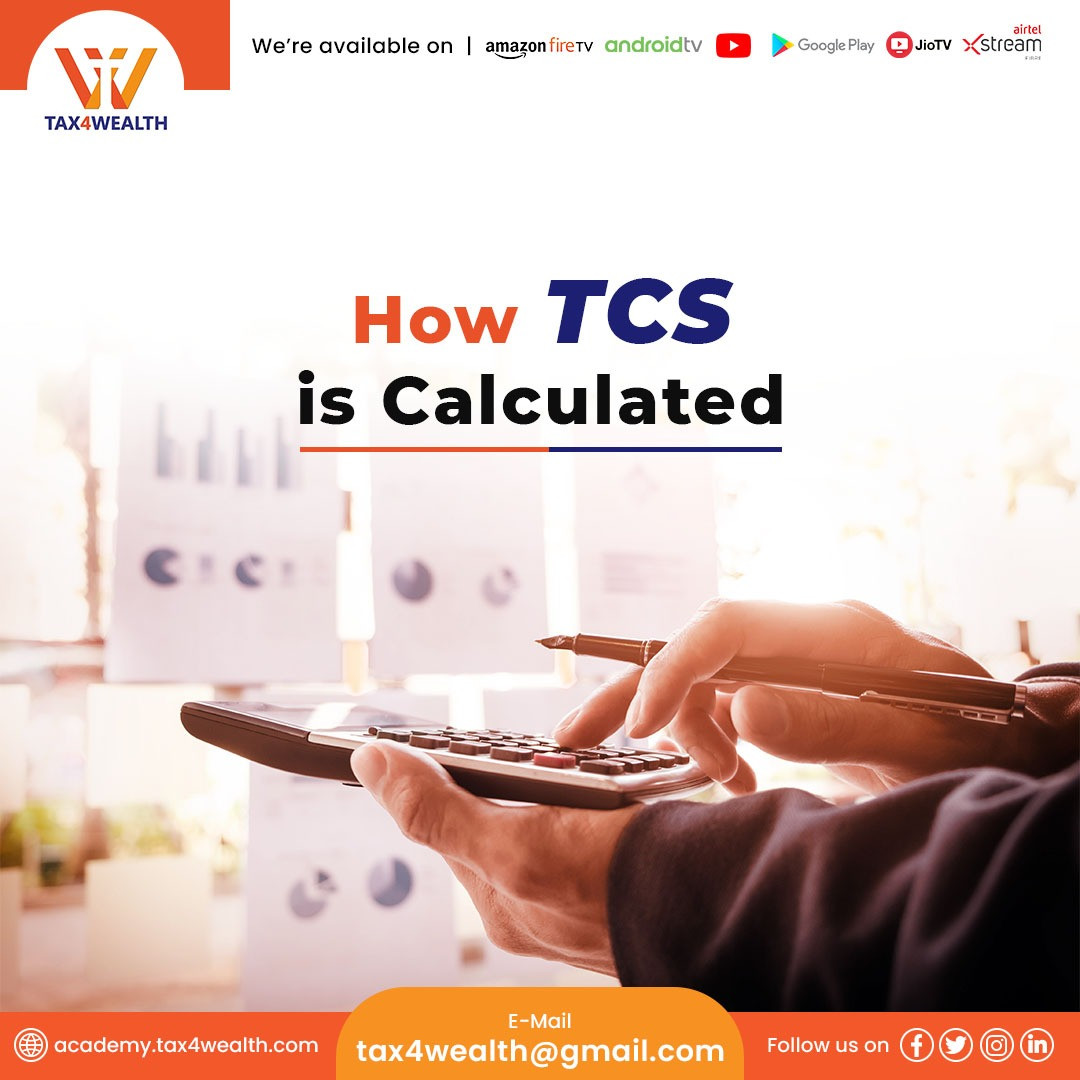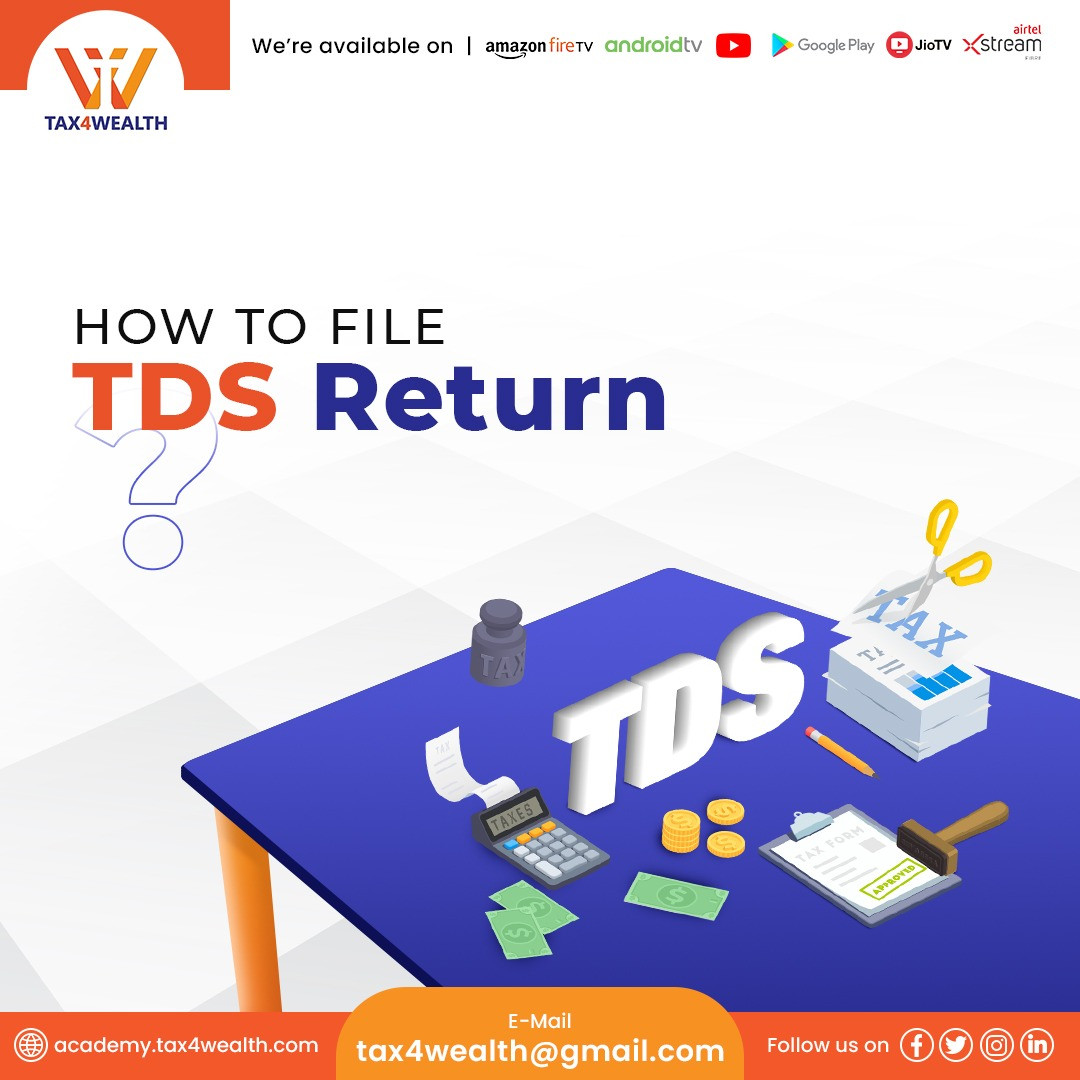
Audit Under Income Tax Act
Introduction Of Audit :
The term "Audit" means the inspection of books of accounts of an organization. The books of accounts may include production report, cash book, annual report etc. In simple words, Audit refers to official inspection of books accounts of an organization by an independent body. It also refers to assessment or systematic review of something.
What is a Tax Audit?
There are different types of audits that are being conducted by organizations these days under different legal rules such as statutory audit or company audit under the provisions of the Companies Act, 1956. Apart from that there are also other audits such as cost audit, stock audit etc. Likewise, the audit that is conducted under the provisions of the Income Tax Act, 1961, is known as Tax Audit.
As the name suggests itself, tax audit refers to the review, assessment and examination of the accounts of a profession or business that is being carried on by a taxpayer under the provisions of the Income Tax Act, 1961. The audit makes the process for calculation of income easier while filing the income tax return.
Objectives of Tax Audit:
The objectives of a Tax Audit are provided below;
✅ To make sure correctness of books of accounts and proper maintenance of records and get the certification of the same by the tax auditor
✅ To Report the discrepancy or error or observation noticed by the tax auditor after a well examination of the books of accounts
✅ To report the relevant information including compliance of different provisions of income tax laws, depreciation on tax etc.
All of the aforesaid things are taken into consideration by the income tax authorities while verifying the accuracy and correctness of the income tax return filed by the taxpayer. Accordingly, the calculation of total income, claim for deduction, and verification of total incomes also becomes simple and easier for taxpayer as well as income tax authorities.
Who is compulsorily subject to tax audit?
If the sales or annual turnover or gross receipts of a business or organization is more than Rs. 1 crore in a particular financial year then the taxpayer is needed to conduct a tax audit. However, it is to be noted that the taxpayer may have to get its books of accounts audited on some of the other circumstances. A table containing the details whereof is furnished below;
|
Category of Person |
Threshold Limit |
|
Business |
|
|
Carrying on the business but not opting for the scheme of presumptive taxation |
Total sales or turnover or gross receipts is more than Rs.1 crore in the Financial year |
|
Carrying on business that are eligible under Section 44AE, 44BB or 44BBB for presumptive taxation |
The claims of gains or profits can be lower than the prescribed limit under the provision of presumptive taxation scheme |
|
Carrying on business eligible under Section 44AD for presumptive taxation |
Declaration of taxable income below the prescribed limit under the presumptive tax scheme and accordingly the income exceeds the basic threshold limit. |
|
Carrying on the business and is not eligible to claim presumptive taxation under Section 44AD due to opting out for presumptive taxation in any one financial year of the lock-in period i.e. 5 consecutive years from when the presumptive tax scheme was opted |
If income exceeds the maximum amount not chargeable to tax in the subsequent 5 consecutive tax years from the financial year when the presumptive taxation was not opted for |
|
Carrying on business which is declaring profits under Section 44AD according to presumptive taxation scheme |
In case the income is more than the maximum amount is not chargeable to tax until and unless in the subsequent 5 consecutive tax years from the date of the financial year in case the presumptive taxation was not at all not opted |
|
Carrying on business which is declaring profits under Section 44AD according to presumptive taxation scheme |
In case the annual turnover or sales or gross receipts is not more than Rs 2 crore in the particular financial year, then audit tax will not be applicable in such businesses. |
|
PROFESSION |
|
|
Carrying on any profession |
Total sales or gross receipts is more than 50 lakh in the particular financial year |
|
Carrying on any profession under Section 44ADA is eligible for presumptive taxation |
1. The claims for profits or gains is less than the prescribed threshold limit under the scheme of presumptive taxation |
|
BUSINESS LOSS |
|
|
In case of any loss suffered as a result of carrying on business and presumptive taxation scheme is not opted for |
Total annual sales or turnover or gross receipts is more than Rs 1 crore |
|
In case the total income of the taxpayer is more than the prescribed threshold limit but a loss has been incurred from carrying on a business and presumptive taxation scheme is not opted for |
In case of loss suffered from business when annual sales or turnover or gross receipts is more than 1 crore, then the taxpayer is eligible for tax audit under 44AB |
|
Carrying on business under section 44AD of presumptive taxation scheme will be applicable and have a business loss but the income is less than the prescribed threshold limit |
Tax audit will not be applicable |
|
Carrying on business under section 44AD of presumptive taxation scheme will be applicable and have a business loss but the income is more than the prescribed threshold limit |
Declaration of taxable income less than the prescribed limit under the scheme of presumptive tax and the income is more than the basic threshold limit |
What if the person is needed to get his accounts audited under any other law other than income tax law?
In such case, the taxpayer required to get his accounts audited again as per the income tax law for tax purposes. If the accounts are already audited under any other law other than income tax law prior to the due date of filing of the income tax return, then it will be considered a sufficient. The taxpayer can also provide the audit report in the prescribed format under the income tax law.
Also read; Audit Interview: Commonly Asked Questions & Expert Answers
Constituents of an Audit report:
The tax auditor is required to furnish the audit report in a prescribed format which could be furnished either in Form 3CA or Form 3CB where;
✅ Form No. 3CA is provided when the individual engaged in carrying on business or profession is required to get the books of account audited under the income tax law or any other law.
✅ Form No. 3CB is provided when the individual engaged in carrying on business or profession is not needed to get the books of accounts audited under the income tax law or any other law.
In either of the case, the above-mentioned audit reports must be furnished by the tax auditor prescribedin Form No. 3CD, which forms part of the audit report.
Furnishing of Tax Audit Reports:
The tax auditor will submit an audit report electronically with use of login details according to the capacity of the ‘Chartered Accountant’. Taxpayers can also add Charted Accountant in his login portal.
Once the uploading of audit report is done, the same can be either rejected or accepted by the taxpayer in the login portal. In case of rejection for any reason, all the process must be followed again until the taxpayer accepts the audit report.
The tax audit report must be filed on or before the due date of the income tax return filing. The due date of filing of income tax is 30 November of the subsequent year if the taxpayer has provided the details of an international transaction and 30 September of the subsequent year for domestic transaction taxpayers.
Penalty for Delay or non filing of Tax Audit Report:
In case, any taxpayer is gets the tax audit done but at the same time fails to file the same or delays to file the same then penalty will be imposed;
✅ 0.5% of the total annual turnover or gross receipts
✅ Rs 1,50,000
However, in case there is a certain and relevant cause for non filing or failure of the income tax return, then no penalty will be imposed under Section 271B of the Income Tax Act, 1961. The following are some of the reasonable caused which can be accepted by courts and tribunals;
✅ In case of Natural Calamities
✅ Consequent Delay or Resignation of the Tax Auditor
✅ Labor problems including locked-outs for an uncertain period, strikes etc.
✅ Loss of Accounts due to the circumstances that are beyond the control of the taxpayer
✅ In case of death of the partner in-charge of the account or due to physical inability of the partner in-charge
For more information, Visit us at: https://academy.tax4wealth.com/
Related News
No comments yet, Be the first to comment.













